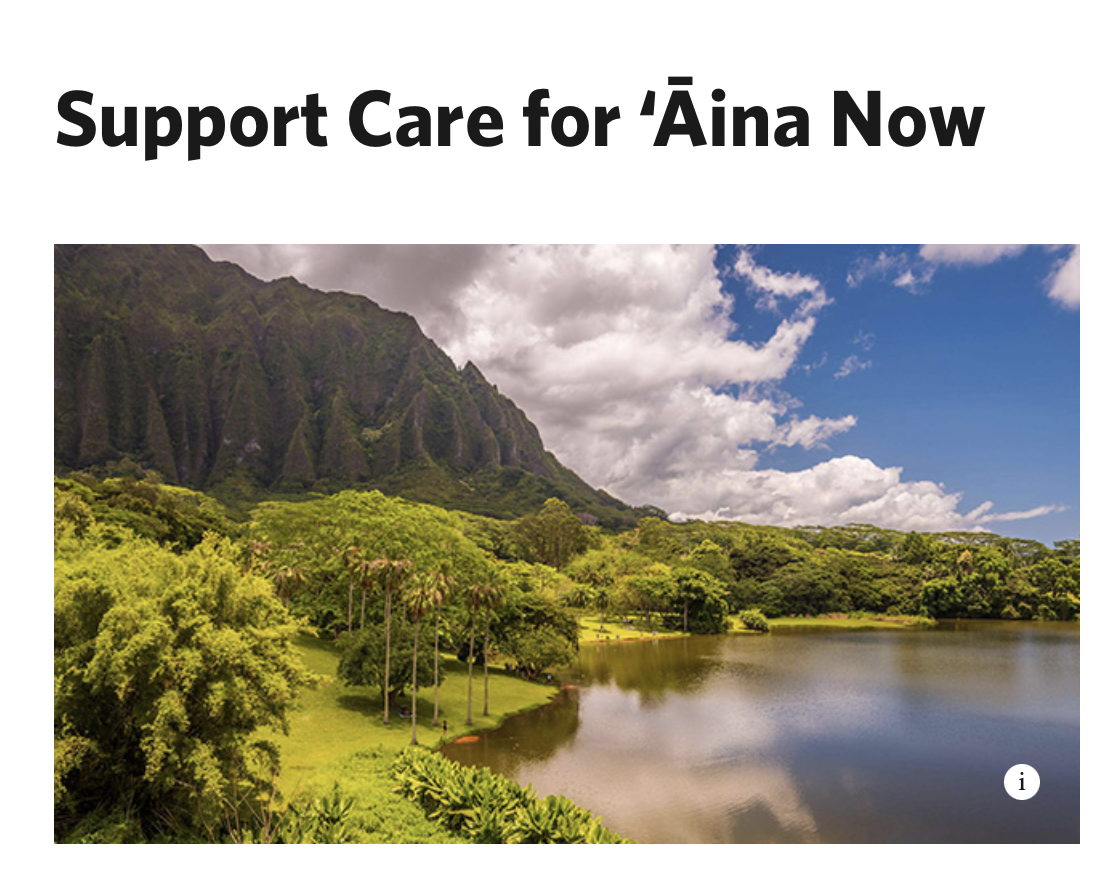
Take Action & Testify
Now is the time to invest in environmental stewardship and climate resilience for our communities, ‘āina, and livelihoods.
In 2025, our coalition supported legislation that generated significant funding for stewardship and climate resilience, and Act 96 was passed.
In 2026, our coalition is focusing on advocating for the first round of green fee projects, which will be selected by the Hawaiʻi State Legislature.
2025 Priority Legislation
Environmental Stewardship Fee: Our coalition continues to strongly supports charging visitors an environmental stewardship fee annually (between $25-50 per individual), to finance environmental protection, restoration, and resilience efforts across the State. The success of an Environmental Stewardship Fee is contingent on the oversight of funds for intended use and community buy-in. We propose at least 25% of annual funding going towards nonprofit implantation partners, ideally through a grant mechanism. If passed, this could sustainable fund natural resource large-scale conservation, coastal protection, climate resilience projects, biocultural restoration, and protection of marine and terrestrial resources for public safety and economic livelihoods.
Transient Accommodations Tax (TAT) Allocation: When visitors book a hotel room, they pay a Transient Accommodations Tax that is allocated to a number of different priorities. Each year, environmental investment falls short of what we need, despite visitors benefiting from our environment throughout their trip. We will support a strong environmental allocation that comes from the existing visitor TAT.
The Nature Conservancy Action Center: send a letter to your lawmaker
As part of our coalition leadership, The Nature Conservancy has a simple Action Center that allows you to send a letter to your elected official and urge them to take action for our ‘āina.
This only takes a few minutes, and can make all the difference.
What could a stewardship fee support?
State management plans already exist to protect our land and waters. Significant funding would help these initiatives benefit our communities.

How Do I Testify?






Tips for Oral Testimony over Zoom
While uploading written testimony is still recorded and reviewed by the committee, showing up in person and sharing your message orally is more powerful. If you are available to testify orally, you will need to join in person at the Hawaiʻi State Capitol or register to attend the Zoom webinar and wait for your name to be called before taking a few minutes to share your thoughts on the measure. Your testimony will be recorded and heard by the entire committee and general public.
-
Prepare your oral testimony in advance using bullet points to highlight the most important parts of your message.
-
Stay straight to the point with your testimony by sharing each key point quickly.
-
Stay gracious and respectful to those you speak with, minimize background noise, and speak clearly.


